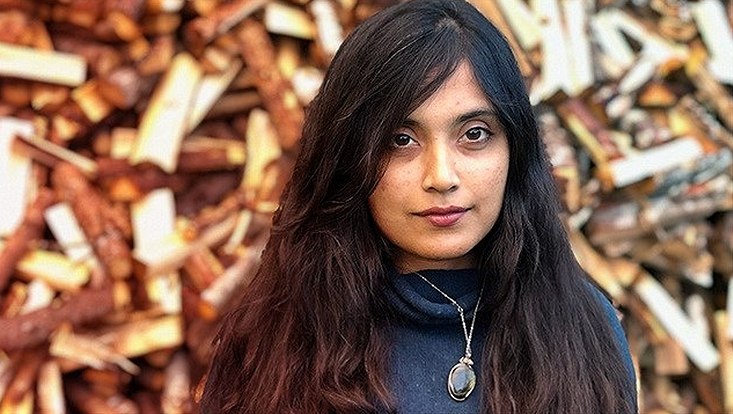Oindrila Ghosh
14 July 2020

Photo: Isak Stromberg
Oindrila Ghosh is from Kolkata, India. In 2019, she completed her Master’s degree at the University of Barcelona and joined the group of Professor Günter Sigl at Universität Hamburg for her PhD. Her Master's thesis focused on the dynamics of various axionic species. She proposed Axion Gegenschein as a novel astrophysical detection scheme for axion-like particles along with her collaborators, and demonstrated the dynamical relaxation process of fuzzy dark matter halos from transition probabilities between various states in a bosonic system characterized by stimulated decay of ultralight axions.
What is the topic of your research?
I study how plasma instabilities occur, grow, and manifest in a broad range of phenomena in astroparticle physics, ranging from gamma-ray signals associated with the erupting jets of extremely energetic blazars or gamma-ray bursts to signatures of axion–plasmon conversion and changes in the small-scale structure and thermal history of the universe. They also serve as powerful indirect probes of the cosmic magnetic field, whose primordial seeds could have led to the generation of a stochastic gravitational-wave background from first order phase transitions through anisotropic stress and magnetohydrodynamic turbulence.
What fascinates you about your research focus?
Astrophysical plasmas provide a unique perspective into early and late-universe cosmology. The exploration of how instabilities arise in these systems in a cleaner scaled down laboratory setting complements and refines the analytic predictions in various physical regimes, helping us address long-standing observational puzzles as well as theoretical challenges.
What do you like about the cluster Quantum Universe?
I enormously appreciate the close interaction and shared enthusiasm among various research groups associated with Quantum Universe spanning experiments, theory and observations. In particular, cluster events such as the Quantum Universe days, the annual meeting and the colloquia are excellent opportunities to get to know the researchers from within and beyond the cluster community and to get insights to exciting developments across diverse fields in real time.
What do you like to do in your free time?
I am really enthusiastic about food and its cultural impact. What started off as a strategic detour from the generic survival guide of a university student’s kitchen experiments and blogosphere exploration has turned into many food pilgrimages around the globe and a strong interest in culinary anthropology. Aside from my lifelong connection with Hindustani classical music and Baul traditions of Bengal, I enjoy watching and making documentaries. On a typical weekend in Hamburg, I unwind with a game of cricket.
